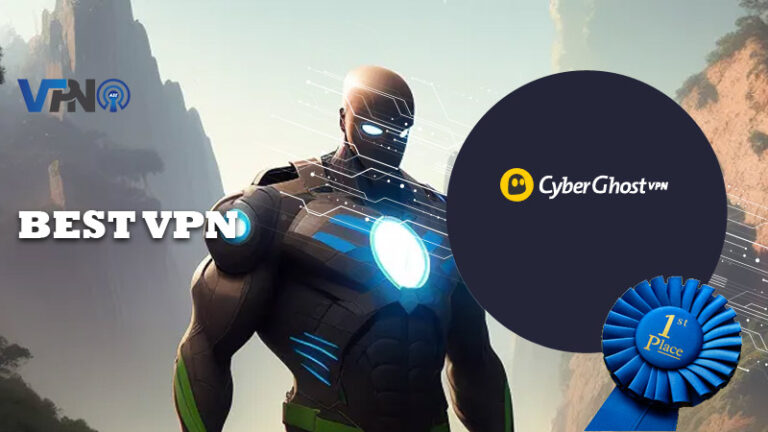How Does VPN Split Tunneling Work?
If you have ever wondered how a VPN works, read on to find out how this feature can benefit you. It protects you from government spying and allows you to access geo-restricted content. In addition, this method allows you to connect to two networks at once, increasing security without reducing transfer speeds. However, it’s not a universal solution for your needs. You can read on to find out how VPN split tunneling works in more detail.

2. PIA - Ton of servers world wide, but especially great in United States.***

3. NordVPN - The bigger the better! A great choice everywhere!***

4. ExpressVPN - Trusted by millions in over 180 countries!***

5. SurfShark - Amazing deal right now!***

6. PrivadoVPN - Exclusive deal - Cheapest 1 year deal online - ONLY through this link***

*** Offers money-back guarantee. So try them risk free!
Protects you against government spying
VPN split tunneling allows certain data to bypass the encrypted VPN connection and access the internet directly. This type of security is mostly relevant for remote access type VPNs, which are similar to work-from-home setups. However, you can also use it to connect to social networks. Split tunneling works by allowing you to connect to the Internet while browsing websites that do not require secure connections. Here are some of the benefits of VPN split tunneling.
Split tunneling is another security feature found in some commercial VPN services. It works differently than exempting certain applications and destination IP addresses. It is useful for business users who want to protect their personal data from government spies. The VPN software encrypts the original packet and puts a new header on it. When the original packet reaches the VPN host, the new header is decrypted and the packet is sent to its original destination.
VPN split tunneling also protects your privacy when you’re using public Wi-Fi networks. Public Wi-Fi networks are generally hostile by default. In addition, devices on local networks may spy on your traffic and try to break into your computer via local protocols. By encrypting your data, you’re protected from snoopers and other internet threats. However, be aware that split tunneling has some risks.
Another advantage of VPNs is that they encrypt data before it leaves your device. This is particularly important if you’re on public WiFi. Otherwise, the Internet may be able to see all your personal information, including your IP address. If your WiFi connection is not secure enough, then the government can spy on you and your personal information. But you can get a VPN that blocks all of this.
Allows you to access geo-restricted content
Despite what you might think, geo-restrictions are possible. They occur due to the fact that websites know your location and then check their whitelists or blacklists to make sure you can access what they have to offer. If the website that you are trying to access is blacklisted, it will redirect you to the region that you are located in. If it is not, you will receive a message stating that it does not offer the service in your area.
This happens for a variety of reasons. For example, streaming services may only be available to users in certain countries, while betting websites only provide service to those in that country. These geo-blocks can occur when you are trying to access content that is restricted, banned, or illegal. You shouldn’t be angry, though, because just because a site is geo-blocked does not mean it is bad. It just means that some countries have different values than others.
Geo-restrictions are a common practice among governments. The UK government uses geo-blocks to ensure that its citizens can access certain types of content, including online gambling. Despite geo-blocking content, online casinos are required to comply with local laws, which makes geo-blocking content a necessary part of operating in the UK. So, while VPNs don’t prevent geo-blocking, they can still allow you to access geo-restricted content.
Fortunately, there are solutions available for all kinds of geo-restricted content. While geo-blocking content can be a pain, technology has made it possible to remove this problem for consumers. If you have a device that supports this feature, you can access geo-restricted content. And with an app, you can bypass the restriction if you choose to install it.
While bypassing geo-restrictions is not illegal, it is technically violating terms of service. In theory, streaming services could terminate your account if you try to circumvent their rules, but they actively block these methods. As a result, you may experience weird situations. You may have to choose a different streaming service to watch geo-restricted content. A VPN is the ideal solution.
Allows you to connect to two networks simultaneously
Windows allows you to connect to two networks simultaneously, but not to the same ones. This feature is supported by select Dell laptops. In this configuration, your computer acts as a bridge between two networks, allowing a smartphone connected to network one to access files on network two. Bridge connections only work with file sharing and local networking, and your computer will still access the internet through its primary connection. However, if you need to connect to both networks simultaneously, you can use a third-party app.
To use link aggregation, you need to have an ethernet adapter from each provider you’re connecting to. The computer you’re connecting to needs an ethernet adapter from your modem or router. You’ll also need an ethernet cable or a USB cellular data adapter for each internet provider you connect to. Speedify is a program that allows you to mix and bond the two active connections.
Increases security without compromising transfer speeds
A key benefit of VPN split tunneling is the ability to protect company data without sacrificing transfer speeds. Insecure networks can be a point of vulnerability for malicious actors, and are not only insecure, but they can also be a gateway to data exfiltration. A VPN can increase security without slowing down a connection, which is important for remote workers. Here are three reasons why split tunneling may be right for your business.
Some people want to increase security but not transfer speeds, and they are happy to compromise their privacy for higher internet speeds. However, some people may be hesitant to use VPN split tunneling because it can leave some loose ends. Some users, such as journalists in repressive countries, may find it too risky. And in some cases, split tunneling can cause problems, as hotspot operators can see the traffic you send and receive.
While most users appreciate high transfer speeds, they also desire the added security that VPNs provide. While some activities require high levels of security, such as online banking, email exchanges, or transferring confidential files, others do not. Split tunneling can solve this issue without sacrificing transfer speeds. While VPNs are convenient for some internet users, they can cause problems with certain websites, apps, and local printers. However, the main benefit of VPN split tunneling is that it increases security without compromising transfer speeds.
Split tunneling can also be used to prevent unintended IPv6 address access. By default, split tunneling will only work for sites you use frequently. However, you should remove this option after ensuring that it works. If you need to use VPN split tunneling, you should look for a service that supports dual-stack networking. This combination can help you enjoy the benefits of both a high-speed unencrypted connection and the security of VPN split tunneling.
To enable VPN split tunneling, you must enable the feature of your VPN service. It is usually easy to enable; all you need to do is go to the settings menu and click Split tunneling. You can then manage your VPN per URL or app by choosing which ones you want to use, and which ones you want to keep open. To test the ability of split tunneling, you should connect to a VPN server outside of your current country.



